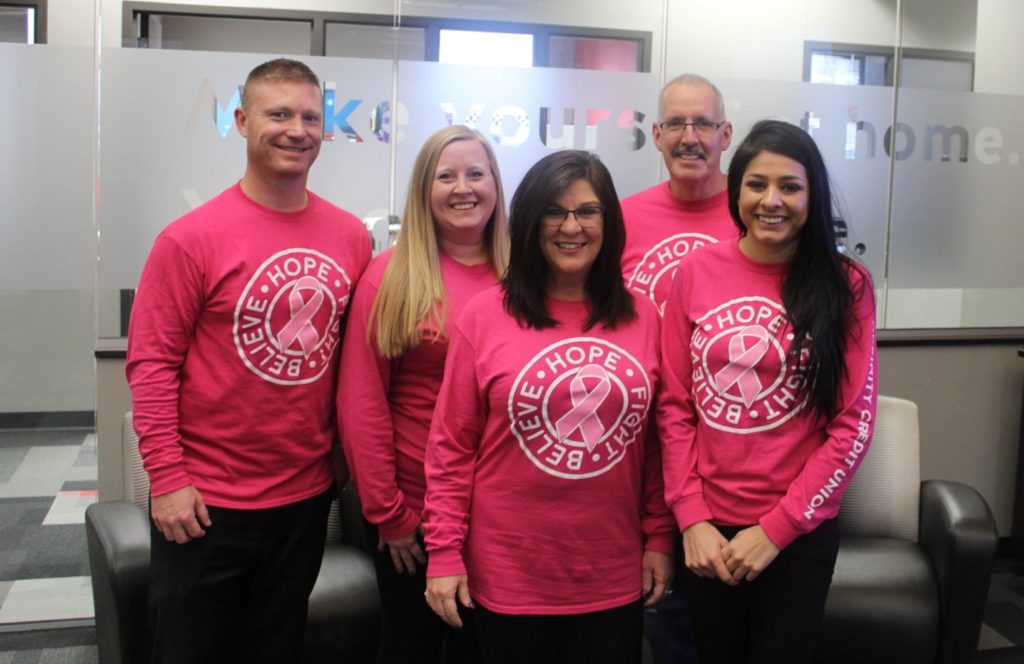When the Firestone plant in Des Moines, Iowa, made the decision to shut its doors for an initial two week period on March 22 to prevent the spread of coronavirus, the realization dawned on Affinity Credit Union ($122M, Des Moines, IA) CEO Jim Dean that more would have to be done to provide hardship assistance to members. The closure of the credit union’s original SEG group, which has since been extended into mid-April, drove home the message that this was likely to affect virtually all members, many of whom may have to go without work for an extended period.

CEO Jim Dean
Although the credit union had already implemented some measures to alleviate financial setbacks, Dean and his team set forth to find further means of assisting members. When asked how he decided to approach the task, Dean cited that while others may be going case-by-case, he felt an open, transparent, and upfront approach would be the best way to reach members, even going so far as to write an open letter to members, available from the front page of their website.
“What we did was to essentially layout from the beginning of this crisis exactly what we’re going to do for our members, so that there would be no doubt or wonderment as to whether we’re going to help them or not. Or if we’re going to help some, but not all,” said Dean. The results have been extremely positive, even resulting in some unexpected outcomes. Several chronically delinquent borrowers made themselves current in order to qualify for the two-month skip pay offering.
The credit union also made the decision to waive overdraft, NSF, and late payment fees until the end of April, at which point they will see what progress has been made and decide whether to extend those waivers. They even waived early withdrawal penalties on certificates for members that may need to free up funds.
Adapting to a social distancing new norm
Although Iowa remains one of the few remaining states without an official “shelter-in-place” order, that did not stop Affinity from acting early to adhere to social distancing recommendations. The credit union closed its two branch lobbies on March 16, opting to switch to drive-up service only.
“Our members typically line up almost out the door, all day long. Making the decision to switch to drive-thru immediately was not a hard one, because I don’t think they would have stopped coming today if we had allowed those lobbies to be open,” Dean said, adding that members often show up as a social visit, rather than just as a necessity.
The demand for drive-thru service was so great that the credit union had to make the decision not to accommodate shared-branching visitors. “We have a long drive, and I would say 30 or more cars could fit back to back in our drive going to the drive thru lanes, and it was out on Hoffman Lane on April 3rd because that was Social Security day.”
Thanks to having already implemented a variety of digital solutions, including e-sign, mobile remote deposit capture, and online account application and opening, transitioning to a mostly online service practice has been made easier. For members without access to those resources, the drive thrus will remain open, not just for typical transactions, but also to sign loan forms.
Going remote not without its own surprises
In addition to closing lobbies for member and staff safety, the credit union has been able to move 25 of its 33 employees to work in a remote environment. Although anticipating a drop in productivity, Dean found that not only was the team maintaining productivity, but it had actually increased compared with key metrics from the same period last year. Dean attributes this to training put in place and staff motivation.
“I didn’t necessarily expect it. As a matter of fact, I sat down with the financial service officers and talked about the crisis we’re in and told them, don’t worry about your production goals, just serve the members.”
Dean added, “There have been some astonishing production numbers, especially considering they’re producing remotely.” Although new auto loans might have diminished, the credit union has seen an uptick in auto loan refinances and seen success in other areas as well.

























































